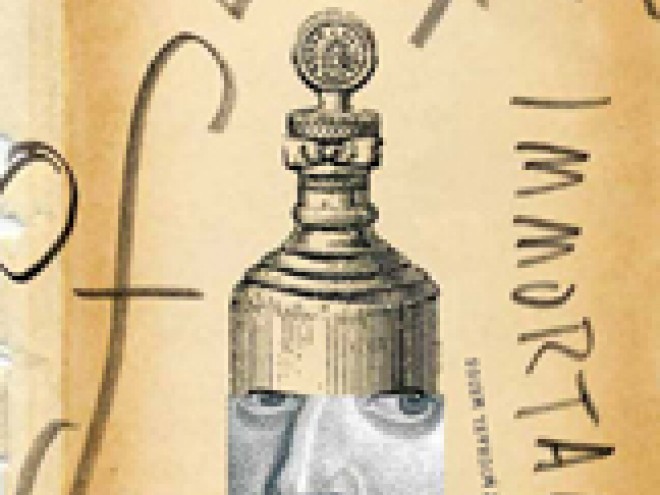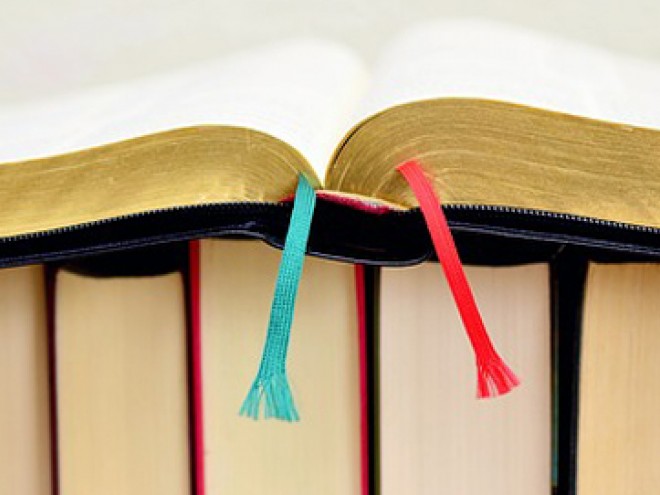
With Passover just around the corner, it’s time to start stocking your bookshelves for the holiday! Slip away from your seder and sink into poetry, memoirs, and new fiction about someone else’s dysfunctional Jewish family at Passover:
Tell Me How This Ends Well
 David Samuel Levinson imagines a near-future in which antisemitism runs rampant and Israeli refugees roam the Globe after the world stood by and watched the annihilation of the Jewish State at the hands of its neighbors.
David Samuel Levinson imagines a near-future in which antisemitism runs rampant and Israeli refugees roam the Globe after the world stood by and watched the annihilation of the Jewish State at the hands of its neighbors.
Ten years into the future, three siblings reunite in Los Angeles to “celebrate” Passover as a family and carry out an ill-conceived plot to murder their dad. There’s Jacob, visiting from Berlin with his German boyfriend and a sinister spare suitcase he intends to keep hidden; Edith, divorced, unstable, and facing sexual misconduct charges from an undergraduate student dissatisfied with his grade from her Ethics course; and Mo, husband, father to a set of twins and triplets each, and failed-actor-turned-reality-star in his forties hosting Passover in a mansion maintained by the network company that will be returning to film an encore of his family’s Passover seder — unbeknownst to any of his guests.
The Zookeeper’s Wife
Niki Caro’s movie adaptation of Diane Ackerman’s 2007 bestseller hit theaters just in time for the holiday — and the anniversary of the Warsaw Ghetto Uprising, which broke out, significantly, on the first night of Passover, 1943. Inspired by the Passover seder held by the Jews hidden in the Warsaw zoo — and its coincidence with the start of the revolt — Jewish Book Council’s new custom book club kit for The Zookeeper’s Wife features a special Passover haggadah supplement compiled in collaboration with humanitarian relief agencies — the International Rescue Committee (IRC), HIAS, and CARE — and leading Jewish organizations around the country to commemorate the the struggle for freedom that the holiday represents. Click here to download the free reading guide!
Moses: A Human Life
What better time than Passover to read a biography of Moshe Rabbeinu — written by renowned scholar and lecturer Dr. Aviva Gottlieb Zornberg, no less — than Passover? Accessible and illuminating, Zornberg’s recent contribution to the Yale Jewish Lives series brings her signature cross-application of Jewish texts, world literature, and psychoanalytic examination to one of Tanakh’s most complex characters.
We Were the Lucky Ones
 Based on the true story of her family’s survival of World War II as Polish Jews, Georgia Hunter’s debut novel begins and ends with two Passover seders, eight years apart. In early March of 1939, Addy Kurc — Hunter’s maternal grandfather — meanders the streets of Paris in the wee hours of the morning, turning over a letter from his mother begging him to stay in France for the upcoming holiday rather than risk the closing borders of German-occupied Poland. He writes back to answer that he is resolved to return home to Radom, but even as his parents and siblings gather around the seder table no further word arrives — and neither does Addy.
Based on the true story of her family’s survival of World War II as Polish Jews, Georgia Hunter’s debut novel begins and ends with two Passover seders, eight years apart. In early March of 1939, Addy Kurc — Hunter’s maternal grandfather — meanders the streets of Paris in the wee hours of the morning, turning over a letter from his mother begging him to stay in France for the upcoming holiday rather than risk the closing borders of German-occupied Poland. He writes back to answer that he is resolved to return home to Radom, but even as his parents and siblings gather around the seder table no further word arrives — and neither does Addy.
The next eight years follow the separated factions of the Kurc family from German-occupied Radom and Toulouse to Soviet-occupied Lvov and Vichy France; across the Mediterranean to Dakar and Casablanca, across Siberia to Kazakhstan and Tehran, across the Austrian Alps to the Adriatic Coast (and Allied military camps) of Italy; on to Warsaw, Krakow, Lodz, Tel Aviv, Illinois, and Rio de Janeiro, where the whole family — all three generations miraculously intact — reunites for their first Passover seder together since Kristallnacht. Of the 30,000 Jews living in their hometown of Radom, Poland before the Holocaust, fewer than 300 survived — and “luckily,” every member of the Kurc family among them.
The Dinner Party
Sylvia is planning the perfect Passover seder. Everything from the table settings to the menu to managing her helpless husband and hapless children — a son run off to Doctors Without Borders, a daughter who left medical school (and a Rothschild suitor) for the beach, a non-Jewish boyfriend dating the professionally successful one — has been accounted for. But guests comes with problems and intrigues of their own…
My Jewish Year
 Abigail Pogrebin’s new personal exploration of the Jewish holidays is a wonderful companion year-round, but I was especially curious to read her reflections on Passover, given her family legacy around the holiday — her mother, Letty Cottin Pogrebin, convened the first feminist seder together with E. M. Broner, Phyllis Chesler, and Lilly Rivlin, and Abigail grew up attending this annual gathering as a “Seder daughter” over the subsequent years, seated among Gloria Steinem, Bella Abzug, Bea Kreloff, Edith Isaac-Rose, and others.
Abigail Pogrebin’s new personal exploration of the Jewish holidays is a wonderful companion year-round, but I was especially curious to read her reflections on Passover, given her family legacy around the holiday — her mother, Letty Cottin Pogrebin, convened the first feminist seder together with E. M. Broner, Phyllis Chesler, and Lilly Rivlin, and Abigail grew up attending this annual gathering as a “Seder daughter” over the subsequent years, seated among Gloria Steinem, Bella Abzug, Bea Kreloff, Edith Isaac-Rose, and others.
Indeed, a full chapter of My Jewish Year is dedicated to “The Feminist Passover: A (Third) Seder of Her Own.” In the chapter before, Pogrebin sticks to the traditional seder — and pre-holiday cleaning, gaining as much from the ritual of bedikat chametz and cooking with her children as the seder itself. She shares some favorite party tricks to spark meaningful discussions around the Passover story and how it translates to the present moment, including the homemade haggadah she has compiled over the last several years — ”a collection of questions rather than readings[…] that meets all the seder requirements, while inviting constant participation.” Maybe that will be her next book…
The Book of Separation (Coming September 2017)
 Bedikat Chametz emerges as a compass of unexpected resonance for Tova Mirvis in her forthcoming memoir, as well. Celebrating Halloween for the first time at age 40, the foreign experience of trick-or-treating with her children reminds her of searching for bread crumbs with a candle, a feather, and a wooden spoon with her father the night before Passover every year.
Bedikat Chametz emerges as a compass of unexpected resonance for Tova Mirvis in her forthcoming memoir, as well. Celebrating Halloween for the first time at age 40, the foreign experience of trick-or-treating with her children reminds her of searching for bread crumbs with a candle, a feather, and a wooden spoon with her father the night before Passover every year.
Mirvis’s story of leaving the Orthodox world of her upbringing and marriage cuts to the quick — with especially sharp poignancy as the Jewish holidays cycle through her life. Early in her married life, Passover stood as a symbol of the balance in her relationship, and her role within it: seders spent with her parents in Memphis, in exchange for the autumn holidays in Boston with his, “squelching” challenges to her faith with religious routines — vacuuming the the mini van for any traces of chametz before the Festival of Matzah. But it is toward the end of the book, in a chapter devoted to Passover, the holiday takes on its strongest significance: recounting the story of Exodus at a small seder with only her parents and children, Mirvis begins to think of her own liberation: her divorce. At the end of the official ceremony before a Jewish court of law, she remembers, the presiding rabbi encouraged her to embrace this new start to her life, to “become the person you need to be,” and wished her mazal tov.
Open My Lips
This is a story about change.
Look: the seas are parting.
It’s happening now. Open your eyes.We were slaves to Pharaoh in Egypt
but God brought us out of there.
This is a story about change.
Rachel Barenblat’s poetry on “Pesach to Shavuot” continues the literary fixation on preparing for Passover from women writers.Listing everything to be done before the holiday begins — from buying canned macaroons to calling her mother “to ask again whether she cooks / matzah balls in salted water or broth, because you can” — Barenblat combines wry humor with heartbreaking memories, adding, “Realize that no matter how many you buy / there are never quite enough eggs at Pesach,” right after a memory of her grandfather confused over the loss of his wife only weeks before another Passover years ago. Another poem eulogizes the Arab Spring, and in the interim before Shavuot Barenblat meditates on counting the Omer: “Humility and splendor in a single day, / two opposites folded into one. / Roots strengthen us as we count.”
Related Content:
- Reading List: Passover Picks
- Children’s Passover Favorites, New and Old
- Liane Kupferberg Carter: Let My People In: Setting a Place for Special Needs at the Seder Table
- Internal Dialogue: What’s With All the Social Justice Seders?
Nat Bernstein is the former Manager of Digital Content & Media, JBC Network Coordinator, and Contributing Editor at the Jewish Book Council and a graduate of Hampshire College.
 by Diane Ackerman
by Diane Ackerman by Aviva Gottlieb Zornberg
by Aviva Gottlieb Zornberg by Brenda Janowitz
by Brenda Janowitz by Rachel Barenblat
by Rachel Barenblat


